At Stack Up, a nonprofit serving U.S. veterans across the country and the world, playing games is part of the firm’s mission. Founded in 2015 by Stephen “Shanghai Six” Machuga, a former Army Infantry/Military Intelligence Officer and Airborne Ranger, he served in Iraq with the 2nd Infantry Division for 13 months. What helped him get through that “seemingly endless” time was video games.
After leaving the service in 2006, Machuga worked in Washington DC as a government counterterrorism analyst and also did charity on the weekends. That charity work is where he found his calling: creating an organization that helps US and Allied military members get through deployments to combat zones and recover from traumatic physical and emotional injuries with the power of video games.
Since its founding in 2015, Director of Communications Brian Snyder, the self-confessed “only civilian in the bunch,” says that the organization has served approximately 33,000 former and current veterans with meaningful services such as the Stack Up Overwatch Program (StOP) which provides 24/7 peer-to-peer mental health support; the Supply Crate program which sends video gaming consoles to deployed veterans; Air Assaults, which are all-expense paid trips for veterans to attend gaming conventions; and the Stacks, comprised of local volunteers who use gaming and other activities to make meaningful connections to the veterans in their communities.
An all-expense paid trip to gaming conventions seemed too good to be true to Lance “Opti_kun” Gillenwater, a former medical laboratory technician for the US Air Force. After a fellow veteran recommended Stack Up, Gillenwater reached out but was skeptical when he was informed he was to be picked up for an Air Assault trip. “I was very skeptical, but I wanted to be around video games,” Gillenwater told Weedmaps News via email. It turned out not to be too good to be true, but just what he needed. “I was so nervous and scared when I went to PAX EAST at the beginning of the year, but they were amazingly warm, understanding, and patient.” The trip, where Gillenwater met some of his idols in the gaming community, changed his life. He even became an employee as influencer coordinator. “I honestly haven’t felt more useful and appreciated since my deployment.”
It’s in the Air Assaults program that Stack Up and Weedmaps make an important connection. “We had a trip in 2017 to Seattle, and I had taken some veterans to a gaming convention called Pax Prime,” said Snyder. “When we go to these events, it’s outside of [the veterans] comfort zones to be surrounded by so many people. The vets are worried about traveling with [cannabis], then worried if they would be able to use cannabis to take care of themselves while they’re away from home.”
On that Seattle trip, Snyder received a phone call from his veterans coordinator who said that one of the veterans on the trip needed to quickly find a dispensary. He suggested that the coordinator use the Weedmaps dispensary finder. “We use Weedmaps to say, ‘do you need a strain, do you need a cartridge, do you need CBD?’ And we go to Weedmaps wherever we are to find it.”
“Weedmaps is very useful when travelling,” Gillenwater wrote. “Especially for work when you need to get your cannabis outside of your usually prescribed route.”
A 2014 study found that nearly 1 in 4 active duty military personnel showed signs of a mental health condition. Some mental health challenges that veterans often face are PTSD, depression, and traumatic brain injury. Snyder said that Stack Up works often with veterans who have faced these same challenges, some of whom have replaced opioids with cannabis, and others who consume cannabis as a way to manage mental health and anxiety.
“When I first got to the Air Assault trip, [Brian] was very open and asked if anyone needed to make a THC run,” Gillenwater said. “That was so generous and just blew my mind when I was there. Up to that point, I had not worked or been a part of something that was accepting of my new lifestyle.”
Snyder thinks that cannabis and video gaming make for an intuitive pairing, “weed and video games make for a good evening. You say, ‘let’s go back to the airbnb, smoke a joint, and play some games!’”
On a more serious note, he believes that gaming makes a perfect match for veterans because of the presence and attention that video games demand, as well as the escapism they provide. “I’ll never forget, I heard someone say, ‘when you have those quiet times, when you’re by yourself, they’re not quiet times for me,” he recounted. “That’s when my brain starts thinking about all those things that happened over there. But I’m playing the game. Engaged with fantasy, and I don’t have time for that other stuff. A game doesn’t move unless you do something. It requires that visceral connection from you to not think about this other stuff for a while.”
Gillenwater says he’s been using cannabis to help his PTSD for years. “I use both video games as therapy and cannabis as medication, which I am legally prescribed through Florida,” Gillenwater wrote. “Cannabis alleviates these feelings and places me on a different thought pattern so I can enjoy what I am doing instead of being PTSD about it.”
Stack Up is hosting a virtual gala on November 14 to raise funds for their ongoing work. You can follow along live by connecting with the nonprofit and the veteran gaming community on their Twitch channel.
Featured image courtesy of Stack Up.
To learn more about how Stack Up supports veterans, visit its website at www.stackup.org
The post How a nonprofit helps veterans with cannabis and video games appeared first on Weedmaps News.

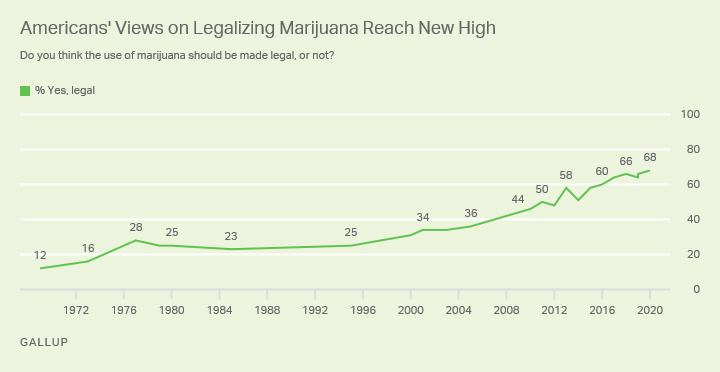 Gallup
Gallup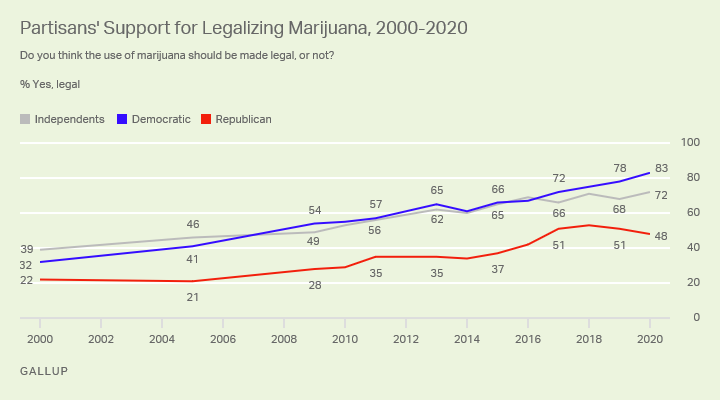 Gallup
Gallup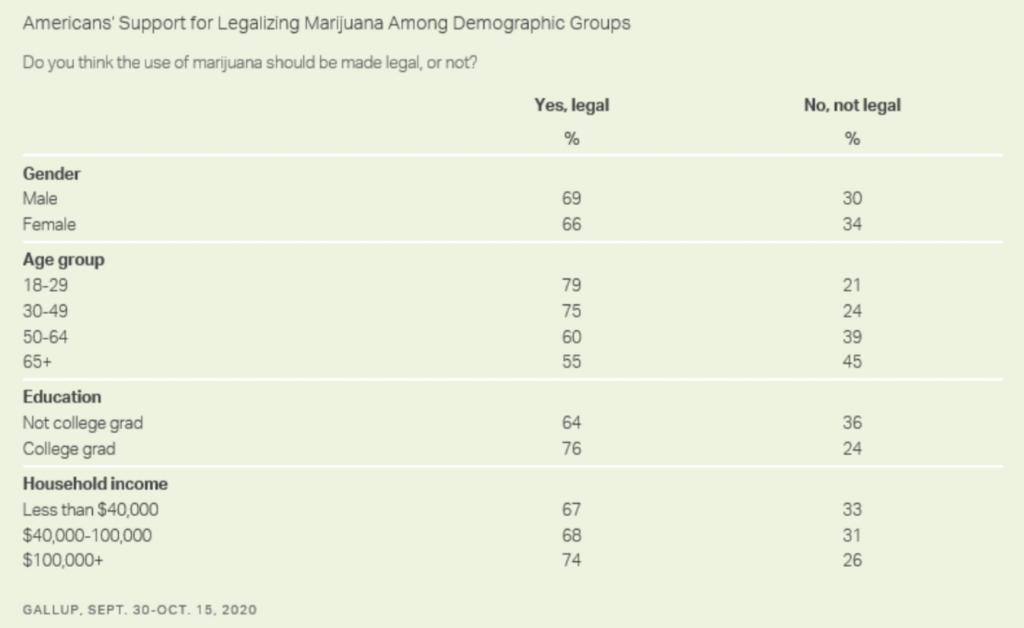
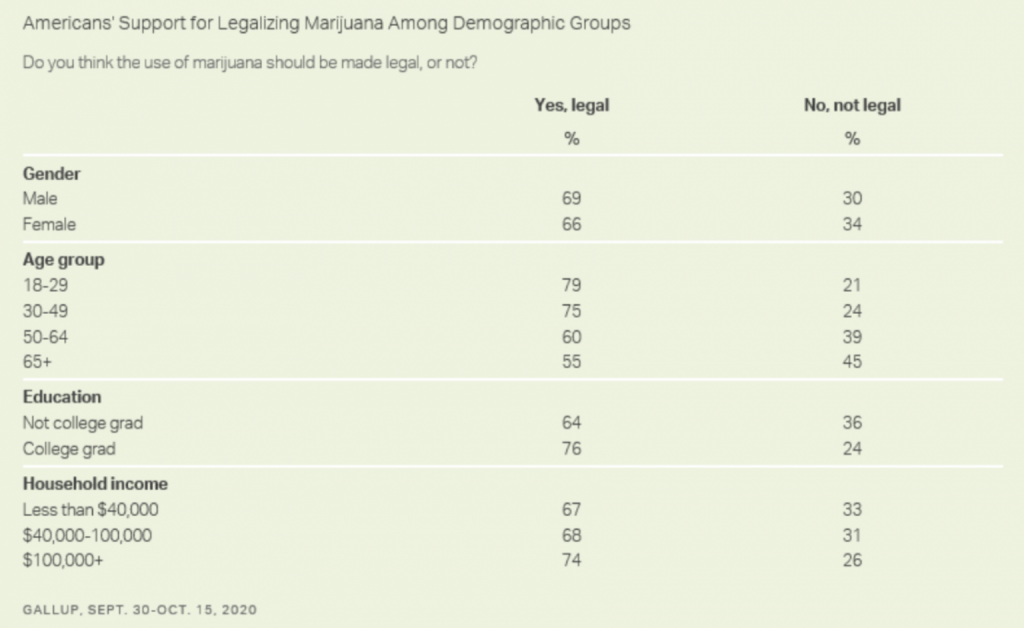 gallup
gallup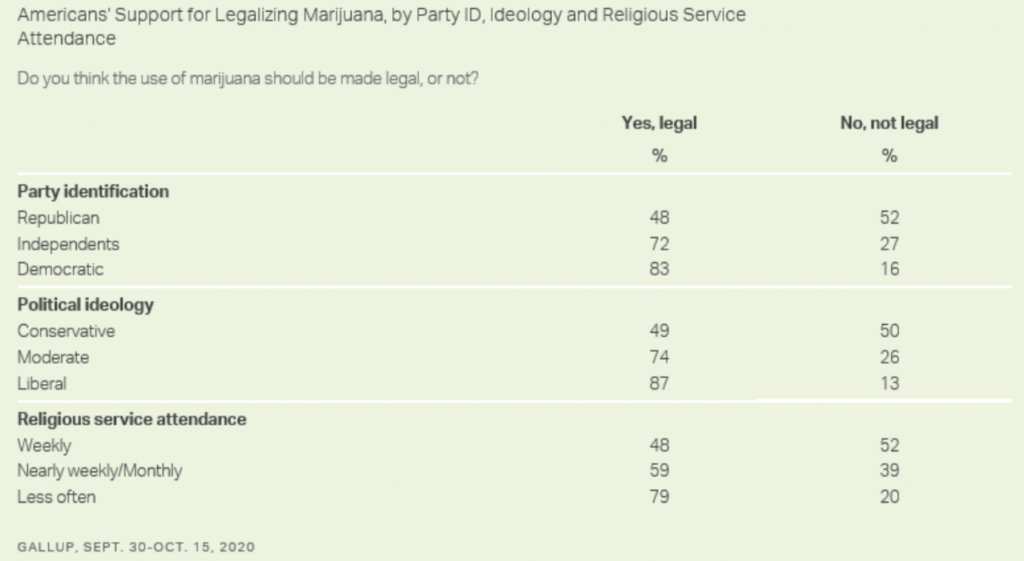
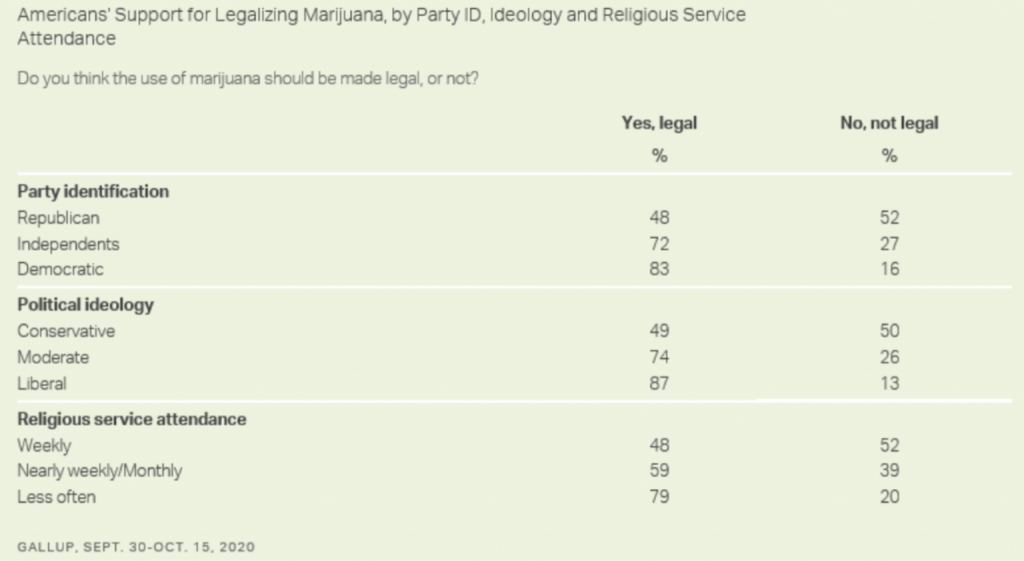 Gallup
Gallup